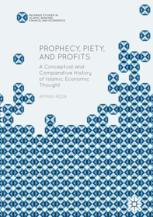

Most ebook files are in PDF format, so you can easily read them using various software such as Foxit Reader or directly on the Google Chrome browser.
Some ebook files are released by publishers in other formats such as .awz, .mobi, .epub, .fb2, etc. You may need to install specific software to read these formats on mobile/PC, such as Calibre.
Please read the tutorial at this link: https://ebookbell.com/faq
We offer FREE conversion to the popular formats you request; however, this may take some time. Therefore, right after payment, please email us, and we will try to provide the service as quickly as possible.
For some exceptional file formats or broken links (if any), please refrain from opening any disputes. Instead, email us first, and we will try to assist within a maximum of 6 hours.
EbookBell Team

4.1
40 reviewsThis book examines, in greater depth than the existing literature, the history of Islamic economic thought. It seeks to introduce Islamic views to debates surrounding critical economic concepts, such as scarcity, wealth, poverty, charity, usury, self-interest, rationality, and markets. It does so through a comparative analysis with the views of Judaic, Christian, and secular economic thought. “Prophecy” is meant to signify the theoretical dimension of religion, while “piety” represents its practical element; neither part is feasible without the other. Together, prophecy and piety inform the Islamic view of economic concepts and phenomena. This view seeks to adjust our approach to profits, both in this world and the next, and seeks to reexamine what is truly profitable and worthy of sacrifice.